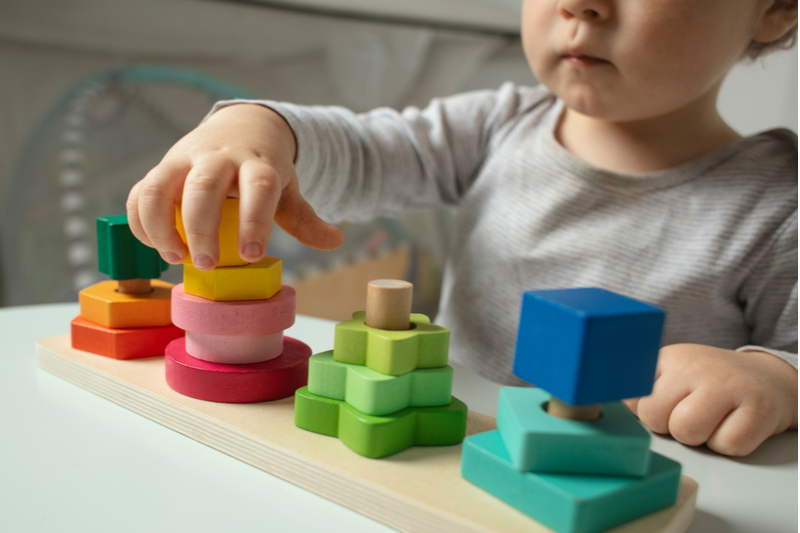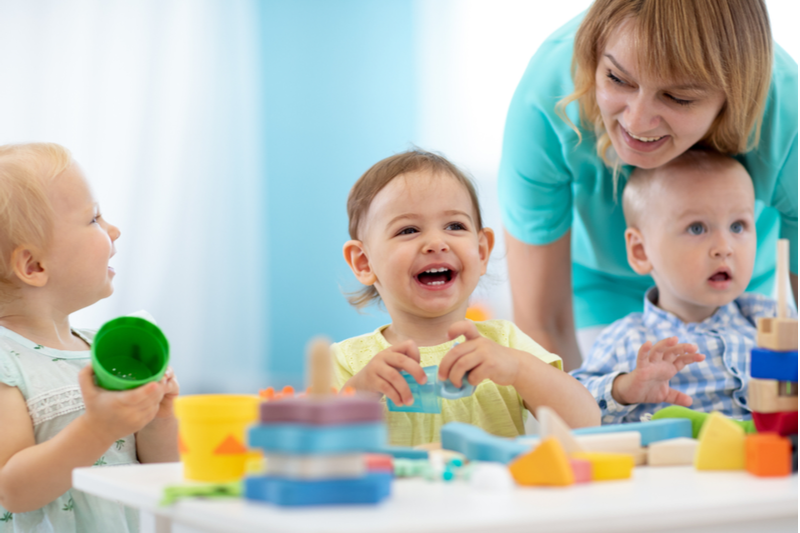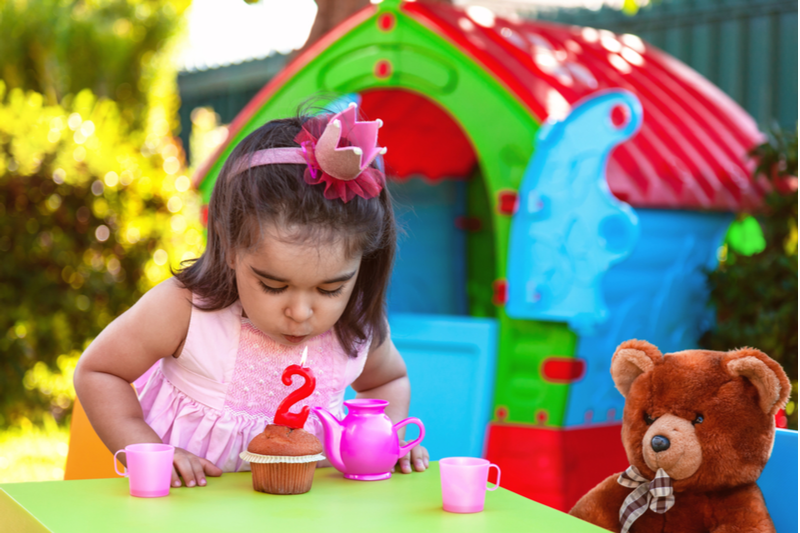Pandemic babies may be suffering as much as the rest of us from COVID-19. An early survey by Brown University researchers found that cognitive scores fell 27-37 points in a sampling of some 605 Rhode Island babies born during the pandemic. That’s a huge reduction in IQ. The reduced scores on verbal, motor, and overall cognitive performance were more pronounced in baby boys and those babies born to low-income families. Based on these findings, researchers believe the pandemic has had a significant negative impact on our children, even where illness and infection are absent.
It must be noted that the Rhode Island study on pandemic babies is only preliminary data, not yet peer-reviewed. Anyone can, however, read the preprint on medRxiv, uploaded on August 11. The hope is that these early findings will lead to a swift peer review, further research, and recommendations on how to remedy what looks to be a dire state of affairs.
The Brown University researchers relied on data from an ongoing study of child neurodevelopment for their findings. These scientists found that infants born after January 2019 performed much lower on cognitive skills compared to infants born before this time.
“It is clear […] that young infants and children are developing differently than pre-pandemic, and that addressing this now while their brain is at its most plastic and responsive, is imperative,” say the researchers, who are unable to say whether the decline in cognitive skills is only temporary.

Pandemic Babies and Environmental Impact
Child development specialists have long known that a child’s environment affects child development. When mom or dad is out of work, on lockdown, sick, or stressed about the pandemic or a sick family member or friend, this cannot be good for child development. Parents who are too busy or too depressed to talk to or read to baby, may result in a lag in the development of baby’s verbal skills.
Pandemic babies like other babies, are impacted by their environment even before they are born. Maternal stress has been shown to have a negative impact on child development while mom is still pregnant, and baby is yet in utero. There is no doubt that the pandemic has been stressful for moms-to-be. Some moms have even been afraid to attend their prenatal visits, for fear of contagion, which can lead to poorer outcomes.
Nutrition may be a problem. When parents are out of work as a result of lockdown, they may not be able to afford nutritious food for their children. Pregnant women may not be eating as they should to ensure their health and that of their babies.

Pandemic Babies and Shuttered Day Care Centers
Child care centers, at their best, offer lots of stimulation for young minds. Many pandemic babies lost out on an important opportunity for enrichment when day care centers were shuttered at length during lockdown. This may explain an interesting discrepancy in the study findings. It seems that pandemic babies born to college graduates were less likely to suffer from a loss in IQ points, compared to their study peers.
Researchers did caution that face masks may have affected the way children responded to cognitive skills tests, perhaps influencing the results of this study. The young subjects may not have fully understood the questions or instructions of the (masked) staff. Pandemic babies, like all other babies, depend on facial cues to gain understanding. When the mouth and nose of an adult are covered, babies lose at least half the clues they need to figure things out.
We may have made the best of things, baking sourdough bread, and working from home in our pajamas, but none of this has been easy, least of all on our children. Pandemic babies are born to an environment that has undergone massive change as a result of COVID-19. The result of all this is that baby may not be doing as well as expected.

First One Thousand Days
The good news is that a baby’s brain is plastic. Public health policy tells us that the first one thousand days from conception to a child’s second birth are crucial to brain development and good health. Parents can use this information to guide them in helping their pandemic babies.
Some tips for boosting early child development:
- Take time for self-care to lower maternal stress.
- Prepare nutritious food for you and for your baby.
- Spend more time playing, reading, and talking with your baby.
- Use every possible free moment you have toward the stimulation and enrichment of your little one.
In reading the findings of this latest study, not yet peer reviewed, parents should not despair. The study comes as a warning, as a means to raise awareness of a problem. But there are things we can do to help our children and positive steps we can take. Parents may sometimes need a reminder, but it is always possible to make a difference for our children.
The time to begin, is now.
